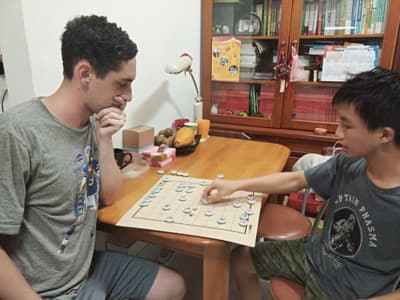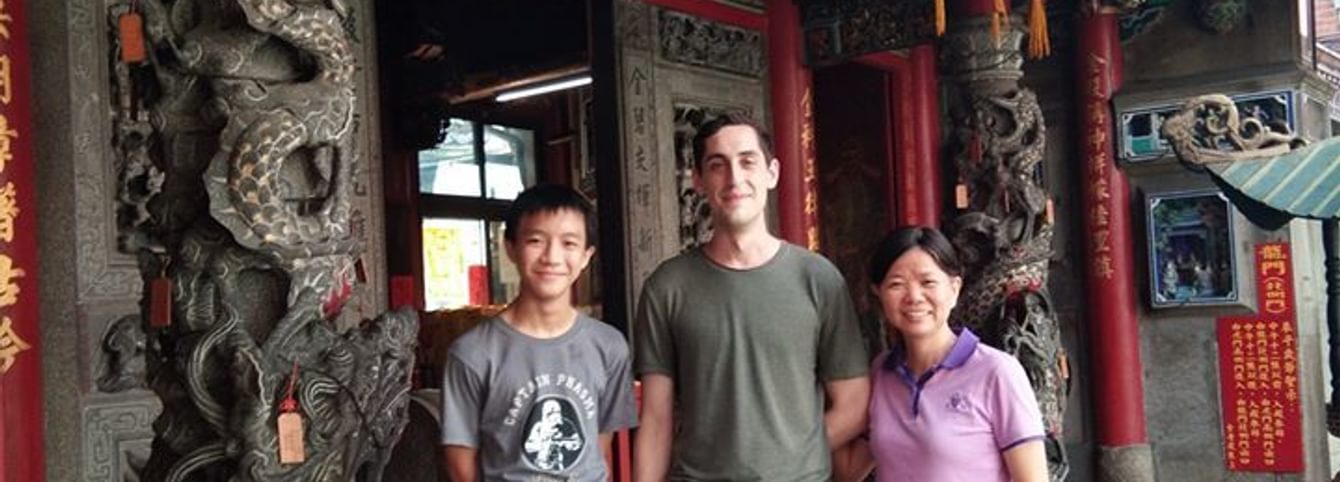Conor McMahon
Conor McMahon is an alumnus of the 2019 CLS Chinese program in Tainan, Taiwan. He’s a current PhD student at the University of Oklahoma, studying Eastern and Western Comparative Philosophy. He uses his language skills frequently in his studies and hopes to continue to do so as he enters a career in academia. In his rare free time, he enjoys exploring Oklahoma’s outdoor activities.
A Language Study Journey
Although I am currently living and studying in Oklahoma, I grew up in Buffalo, NY, where I also completed my undergraduate work at Canisius College. When I finished my time in Buffalo, I decided to move in order to work with a department that best matched my interest.
My interest in Mandarin developed alongside my interest in Chinese Philosophy. It all began while I was an undergraduate at Canisius College. Before I knew anything at all about China or its history and philosophy, I came across an opportunity to study abroad for a summer at Xiamen University in Fujian Province. After spending time in Fujian I fell in love with the culture, history, language and people of China. Since then, I have not stopped working toward mastering the language. My study of Mandarin continues to play a large role in my academic pursuits, where I use it regularly for research. I find that in studying comparative philosophy, it is indispensable to engage with the target language.
Memorable CLS Moments

I will always remember the first night that I was introduced to my host family, which took place at a big ceremony in a restaurant close to campus. The host families had arrived ahead of time and were waiting to meet their students. I was quite anxious, as our language pledges had gone into effect and I now had to face meeting and getting to know new people entirely in a second language. As I was introduced to my host family, I was quickly struck by how welcoming and patient they were. From this starting point and through the subsequent relationship I developed with my host family, I realized something important: many of life’s most significant and impactful interactions start from being courageously open to unfamiliar experiences. Furthermore, if you are willing to jump in, what seems so intimidating at first blush turns out to be quite manageable.
Transitioning After CLS
I was accepted into the CLS Program at the same time I was accepted to graduate school, which necessitated my moving straight from Taiwan to Oklahoma, I state I had never even been to. This meant I was still processing all of my CLS experiences while simultaneously entering into a new community. However, as I began to become established at the University of Oklahoma, I joined language clubs and activities, meeting many other students who have ambitions to study abroad. I have found that sharing my CLS experiences is a great way to relate to and encourage people in these communities.
Why Chinese?
If you are at all interested in studying Mandarin I personally would encourage doing so. The history of China’s culture is startlingly long and as I get more proficient in the language, I open up greater abilities to engage with this history. Furthermore, there are a lot of functional aspects of the language which I really appreciate. For instance, there is no conjugation of verbs and tense is all handled by context or through the use of particles. It is a relief not to have to wade through seemingly endless irregular verbs!
Advice for CLS Applicants
I want to encourage anyone who is at all inclined toward study abroad to give this program a shot. I firmly believe that certain types of knowledge can only be gained from in-person experience. Not only is CLS fully committed to providing this kind of experience as organically as possible, the program is also academically rigorous. By participating in CLS you absolutely will undergo a formative experience by engaging with your host country’s culture. However, you will also find yourself faced with a serious intellectual challenge. The program requires both an open accepting attitude and a determined academic will.



